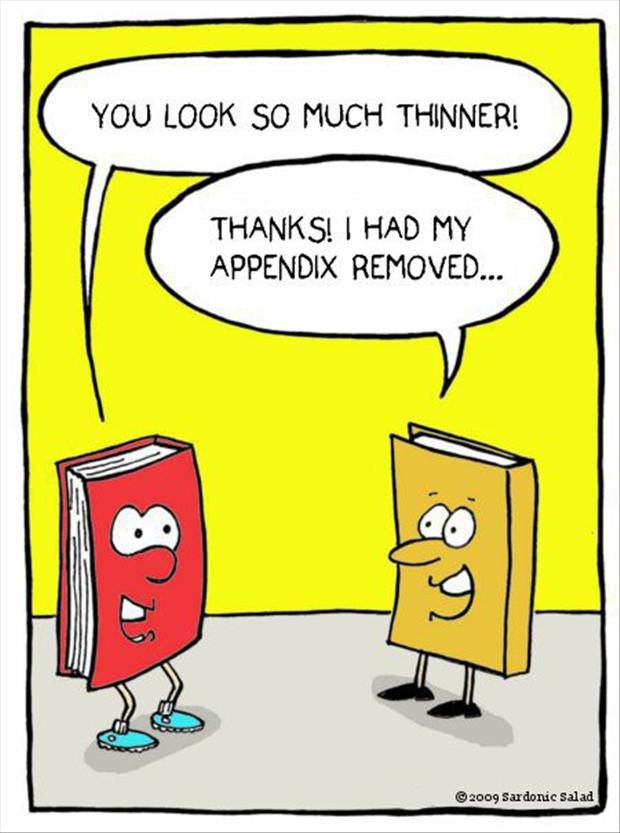|
Tackling More Tricky Word Choices: As, Because, and Since
|
|
American English is a rich, expressive language. At the same time, it
includes words that sometimes appear to be alike but have slight
distinctions. Without recognizing those subtleties, we might use one word
when we mean another.
As, because, and since are three conjunctions that
introduce subordinate clauses (those that cannot stand alone in sentences)
connecting a result and a reason. A closer understanding of these words
helps us write with greater clarity and emphasis in achieving this.
We use because when we want to focus more on the reason. We
use as and since when we wish to center on the
result.
Most commonly, the because clause emphasizing the reason ends
the sentence; the as or since clause stressing the
result starts the sentence.
Examples
Result:
She got the promotion over four other candidates.
Reason:
She knew the system best.
Sentence emphasizing the reason with
because clause: She got the promotion over four other candidates because she knew the system best.
Sentence emphasizing the result with
as clause: As she knew the system best, she got the
promotion over four other candidates.
Sentence emphasizing the result with
since clause: Since she knew the system best, she got the
promotion over four other candidates.
The placement of the because, as, or since
clause can be changed in the sentences above. Some writers might contend
that only the shifted because clause maintains effective fluency
while the repositioned as and since clauses sound more
stilted. Moving the clauses will also change the emphasis by switching the
order of the result and the reason.
Because
she knew the system best, she got the promotion over four other
candidates.
She got the promotion over four other candidates,
as she knew the system best.
She got the promotion over four other candidates,
since she knew the system best.
Because is more common than as or since in both writing and speaking, suggesting we typically emphasize reasons more than results. As and since also are considered more formal in usage.
Looking at the details of these conjunctions polishes another tool in our
quest to be writers of precision and eloquence.
|
|
View this article on our website
|
|
Free BONUS Quiz for You!
[[firstname]], because you are a subscriber to the newsletter, you get access to one of the Subscribers-Only Quizzes. Click here to take a Hyphens Quiz and get your scores and explanations instantly!
We will be adding many more quizzes this year to our already substantial list of quizzes. If you have suggestions for topics we have not yet covered, please send us a message at help@grammarbook.com.
|
Hundreds of Additional Quizzes
at Your Fingertips
Subscribe now to receive hundreds of additional English usage quizzes not found anywhere else!
For Instructors and Employers, you may assign quizzes to your students and employees and have their scores tallied and organized automatically! Let GrammarBook.com take the hassle out of teaching English!
"Fun to test my Skills"
"The explanations really help ... thanks!"
"I download the quizzes for my students who don't have computer access."
|

|
Don't need all the quizzes?
You can now purchase the same quizzes individually for ONLY 99¢ each.
Purchase yours here.
|
If you think you have found an error in a quiz, please email us at help@grammarbook.com
|
 |
The Blue Book of Grammar and Punctuation
by Jane Straus, Lester Kaufman, and Tom Stern |
The Authority on English Grammar! Eleventh Edition Now Available
An indispensable tool for busy professionals, teachers, students, homeschool families, editors, writers, and proofreaders.
Available in print AND as an e-Book! Over 2,000 copies are purchased every month!
The publisher of The Blue Book, Jossey-Bass, A Wiley brand, is offering a 35 percent discount for those of you who order the book through Wiley.com. Shipping and tax are not included. Simply go to bit.ly/1996hkA and use discount code E9X4A.
Offer expires December 31, 2018.
|
Wordplay

|
 |
English In A Snap:
68 One-Minute English Usage Videos FREE |
Learn all about who and whom, affect and effect, subjects and verbs, adjectives and adverbs, commas, semicolons, quotation marks, and much more by just sitting back and enjoying these easy-to-follow lessons. Tell your colleagues (and boss), children, teachers, and friends. Click here to watch.
|
|





